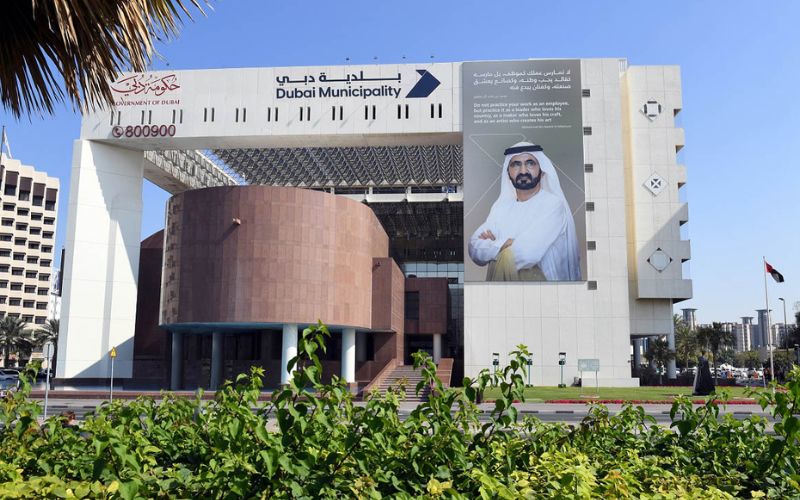It’s essential to follow the correct procedures to ensure your renovation project complies with local regulations.
This guide outlines the necessary steps for securing approvals from authorities like Dubai Municipality, ensuring your project moves forward smoothly and legally.
Understanding the Governing Bodies

Whether you’re renovating an apartment or a villa, the first step is identifying the relevant governing authority.
The Dubai Municipality oversees most projects, but other entities like the Dubai Development Authority (DDA), Trakhees, or free zone authorities may be involved depending on your property’s location.
For instance, apartments in free zones fall under specific jurisdictional authorities, and understanding who governs your area is critical for initiating the approval process.
Documents You’ll Need
Before starting your renovation, ensure you have the following key documents:
- Title Deed: This is essential for proving ownership and determining jurisdiction.
- Floor Plan Drawings: These should show the current layout of the property as well as any proposed changes. If you don’t have these, professional fitout teams can help.
- No Objection Certificate (NOC): This document is often required from your building management or master developer if you’re making structural changes. For apartments, the NOC ensures the proposed modifications adhere to the building’s regulations.
- Square Meterage: Knowing the exact size of your property will help determine the scope of your renovation and the necessary approvals.
Navigating the Villa Renovation Process
Renovating a villa, whether adding a room or reconfiguring spaces, requires detailed planning and approvals.
Dubai’s Local Order No. 3 of 1999 stipulates that any modification to a building, whether permanent or temporary, must receive prior approval from the relevant authorities. Here’s how the process works:
- Application Submission: You or your licensed contractor must submit the required documents and drawings through Dubai Municipality’s online portal.
- Review and Approval: The Competent Department reviews your plans to ensure compliance with all safety, design, and technical standards.
- Site Inspections: After initial approval, inspectors will visit the site to confirm that all work aligns with the approved designs.
- Final Approval: Once construction is complete, a final inspection is conducted, and if all requirements are met, a completion certificate is issued.
Pro Tip: Always hire a licensed contractor or engineer familiar with Dubai’s regulations. They’ll handle the permit application process, ensuring all documentation meets the necessary standards.
Renovating Apartments: The Approval Process
Apartment renovations in Dubai follow a slightly different path.
For example, certain structural changes, like partitioning a studio apartment, may not be allowed under Dubai Municipality regulations.
The approval process typically includes the following steps:
- Submit Your Application: Start by submitting your proposed plans to the appropriate authority, which could be Dubai Municipality, Trakhees, or a free zone authority. Applications can often be submitted online.
- Evaluation of Plans: The authorities will review your submitted documents to verify compliance with the building codes, safety standards, and community regulations.
- Commence Fit-Out Work: Once approvals are granted, you can begin renovation work according to the approved specifications.
- Final Inspection and Completion Certificate: Once the renovation is completed, apply for a final inspection. If everything complies with the approved plans, the authorities will issue a completion certificate, allowing you to officially occupy the renovated space.
Important Considerations for Both Villas and Apartments
- Hiring Professional Help: Given the complexity of Dubai’s regulatory environment, many property owners choose to work with experienced fit-out consultants. These professionals can help navigate the intricacies of the approval process, ensure all documents are properly prepared, and avoid potential legal issues. Not sure on who to hire? Reach out to us for a free consultation!
- No Objection Certificates (NOC): For both apartments and villas, obtaining an NOC from the relevant authorities or community management is critical. Without it, you may face delays or restrictions in your renovation plans.
- Adhering to Local Regulations: Non-compliance can result in fines, penalties, or even legal action. It’s essential to ensure all renovation activities strictly follow the approved plans and local building codes.
Renovating your apartment or villa in Dubai doesn’t have to be a stressful experience.
By understanding the necessary documentation, adhering to the regulations, and working with licensed professionals, you can ensure that your project is both successful and compliant.
Whether you’re transforming a small apartment or adding luxury features to a sprawling villa, following these steps will help you achieve the results you’re looking for – without the hassle.
If you’re ready to embark on your renovation journey, start by gathering your documents and reaching out to us to help get your project underway with the perfect partner.





